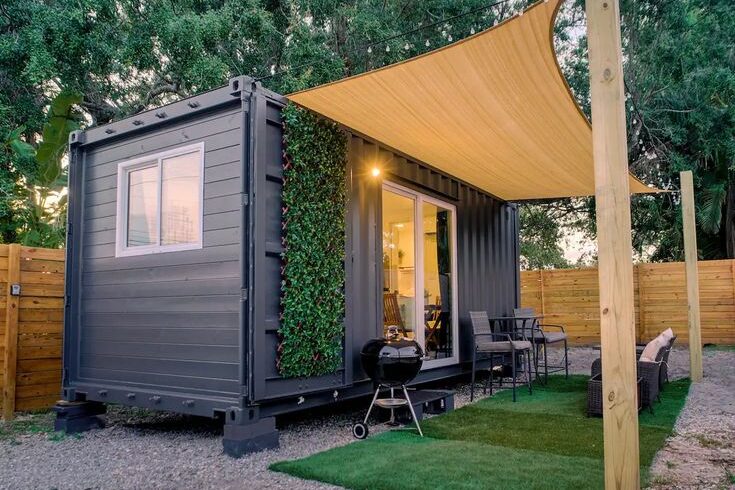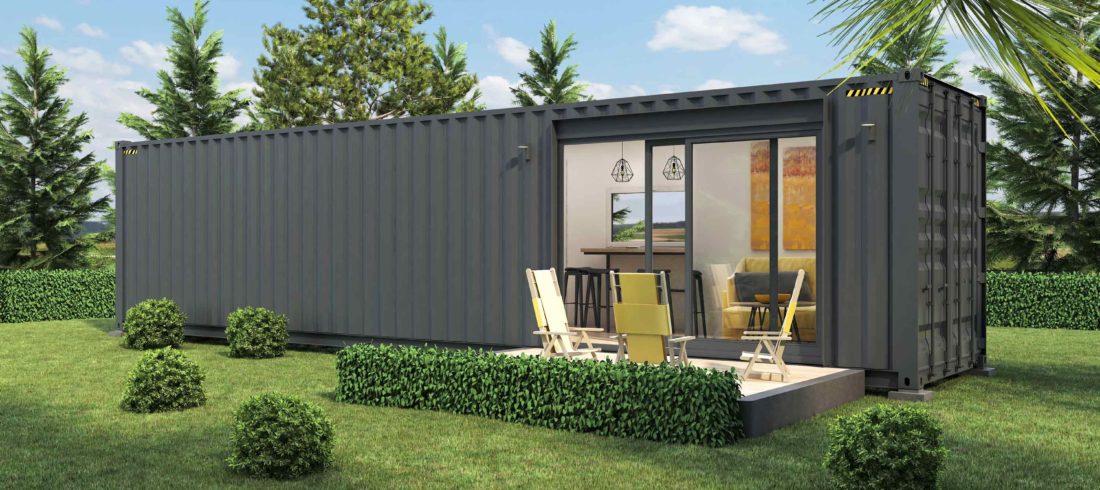Are you wondering “how can I live off the grid?” — join as we explore the lifestyle and go over some of the best tips out there to guide you towards a more sustainable and self-sufficient life. In a world of constant noise and unsolicited opinions, more individuals than ever are seeking refuge. Living off the grid offers you a clear pathway where you can reconnect with nature, reduce your environmental impact, and reclaim a sense of freedom that can be so hard to come by in the 21st Century.
In this article, we’ll explore what it means to live off the grid, how to comfortably transition to this lifestyle in the UK, as well as go over some essential tips for off grid living sustainably. So, whether you’re curious about what it would take, or want to know what you’ll need to do to make it a reality, this guide is a roadmap to a more fulfilling existence.
What is Living Off The Grid?
Living off the grid is a lifestyle choice more and more people are making. Disenfranchised from the modern world of churn, social media overload, and throwaway culture, people are instead opting to disconnect. The off grid lifestyle is all about reducing your ecological footprint and embracing nature and self-sufficiency.
How you live off the grid will depend on your wants and needs. The lifestyle can be sculpted and shaped to your individual preferences. However, some examples of aspects of modern life that some in the culture will reject include:
- Unnecessary utilities
- Consumerism
- Excess waste and single-use items
- City living
- Digital overload
- Toxic modern working culture
- Conventional housing models
Some people see off-grid living as strictly adhering to hard and fast rules like growing their own food and achieving self-sufficiency on a small piece of land. While others interpret it as the freedom to live a modern lifestyle of their choosing, while still escaping the stresses and toxicity of conventional living, and aiming for as much self-sufficiency as possible.
While this may seem like an extremely radical shift, advancements in technology have made a life away from the hustle and bustle more accessible than ever. The key appeal of living off the grid lies in the freedoms it affords you — freedom from bills, noise, and the constant demands that come with every aspect of modern life. It’s an opportunity for you to forge a more intentional and sustainable existence for yourself.
How to Live Off The Grid in the UK Comfortably
For those wondering ‘how can I live off the grid’, it’s important to consider the various moving parts that go into making this commonly-held dream a reality. Remember things like where you’ll source food, drink, and utilities, how you plan to stay warm, how you’ll make money, and more to ensure you stay safe and in line with the law.
If you’re aiming to live comfortably off the grid in the UK, you will need to very carefully plan. While the challenge can be great at times, the reward is even greater and it’s more possible than ever to create a comfortable and fulfilling life off the grid.
Here are some essential tips on how to live off the grid in the UK as comfortably as possible:
- Creative Housing Options
- Converted Shipping Containers: A sustainable and space-efficient housing option like a converted shipping container can be an excellent way to live sustainably off-grid without sacrificing on comfort and limiting your quality of life.
- Energy Efficient Design Solutions: Opting for energy-efficient building designs, like proper and clearly thought-out insulation and ventilation will help you to maintain a comfortable environment to live in.
- Careful Water Management
- Harvest Rainwater: By installing a rainwater harvesting system, you will be able to store the rainwater for future domestic use.
- Water Filtration: If you want to avoid getting sick, you’ll want to make sure you have an effective water filtration system in place. This is vital to ensuring a clean and safe water supply.
- Consider Waste Management
- Composting Toilet: Choosing a composting toilet system will manage human waste in an environmentally friendly way, while also minimising water usage.
- Food Production:
- Grow Your Own Food: Utilising your surroundings for a garden will allow you to grow your own food. This can significantly limit your dealings with large corporations and supermarkets for your produce.
- Local Farmers and Markets: For those times where you need something that can’t be grown, consider supporting a local farmer, market, or independent business. This helps to keep you well-stocked, while not going against the off grid lifestyle.
- Heating Solutions:
- Wood-Burning Stoves: By installing a stove, you can introduce efficient and renewable heating sources to your home. Use sustainably sourced woods if you want to further minimise the environmental impact.
- Maintain Energy Independence:
- Solar Power: The most common way to remain energy independent is to take advantage of the UK’s ample daylight hours and install high-quality solar panels. This can provide you with a highly reliable source of renewable energy for your off-grid home.
- Alternative Energy Sources: There are other ways you can power your home besides solar. You may want to consider wind or hydropower, for example, depending on your chosen area.
- Battery Storage: While the UK does generally experience sunny weather, there will also be periods of reduced sunlight. For these days, it’s strongly advised to invest in efficient battery storage systems. These systems enable you to store any surplus energy for later use when sunlight is scarce.
- Internet Access:
- Alternative Sources: Consider how and when you expect to need internet access and plan accordingly. Consider alternative options such as satellite services to stay connected.
- Limit Screen Time: In order to feel all of the benefits living off grid can bring to your mental wellbeing, consider cutting down on your screen time. Putting your phone and laptop down can provide you with an excellent opportunity to reconnect with nature.
- Support Local Businesses: If you can limit your need for internet access to only a few hours a week, you may not need wifi in your shipping container home at all. Instead, you could visit a local independent business and take advantage of free internet they off (in exchange for your patronage of course)
- Legal Compliance:
- Building Regulations: It’s vital to ensure that your off-grid home complies with all necessary building regulations and planning permissions. You may want to seek expert advice to navigate the legal requirements for living off-grid legally in the UK. For more information about building permits and shipping container homes, check out our dedicated blog.
How to Live Sustainably Off The Grid
For many, the practice of living off the grid will go hand-in-hand with a passion for the environment and sustainable practices. It’s not always just about disconnecting from the mainstream, but also actively pursuing a less-harmful existence. There are a number of important steps you may want to consider, including waste-reduction measures, selecting your location carefully, and more.
Here’s a comprehensive guide on how to live sustainably off the grid to help get you started:
- Carefully Choose Plot: One of the first steps for anybody wondering how to live sustainably off the grid. If you can choose a location that receives ample sunlight, clean access to water, and with an appropriate climate for farming purposes, you can expect to limit your consumption and prioritise renewable sources. Finding a good development plot is key.
- Be More Mindful: In modern life, it can be easy to forget the impact leaving your lights on can have. It’s actually essential that you are always mindful of your energy consumption. Invest in energy-efficient appliances, turn lights off, and embrace a minimalist lifestyle wherever possible. Life Off Grid containers are designed with energy efficiency in mind, but you still have a key role to play.
- Reduce Waste: Off grid living naturally encourages reducing how much waste you generate. If you are going down this path, embrace zero-waste. You can do this by recycling, upcycling, and minimising single-use plastics.
- Create For Yourself: A key part of a life off grid is about being as self-sufficient as possible. With this in mind, invest in renewable energy sources, water harvesting, and grow your own foods.
- Careful Transportation: There’s little use living a green life and going into town in a fossil-fuel guzzling car on the regular. If the call of the city cannot be ignored, minimise your reliance on fossil fuels wherever possible.
Ultimately, living off the grid is not just a lifestyle choice; it’s a commitment to a sustainable and self-sufficient existence. As you embark on this transformative journey, remember that every step you are willing to make is one small step to contribute towards a greener tomorrow.
Live Off Grid: Industry Leaders For Good Reason
As you ponder the possibilities and the potential of living off the grid, we invite you to explore our service, browse our containers, and get a glimpse into just what we can do to turn your vision into a reality. Our converted shipping containers have many uses, and offer a sustainable and space-efficient structure, allowing you to embrace a life off grid without needing to sacrifice any of the luxuries you want. Comfort in the heart of nature.
By choosing this lifestyle of sustainability and self-sufficiency, you’re not just disconnecting from the mainstream, you’re helping to shape a brighter tomorrow. Take the first step today by visiting our website and discovering how you can live off the grid much easier than you likely thought. Ready to embark on the journey? Help us to build a brighter future, one converted container at a time. Contact a member of the team today to find out more.









